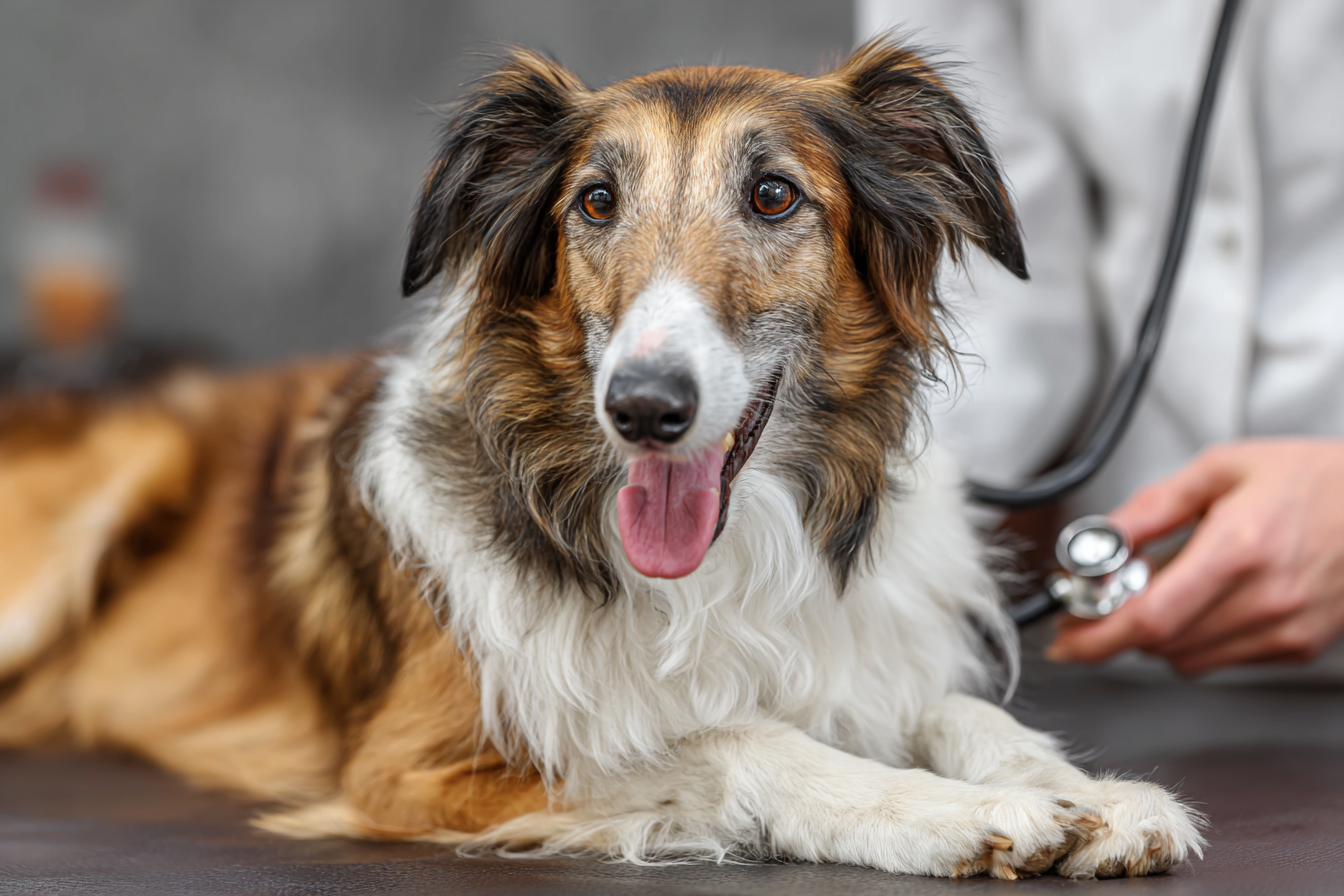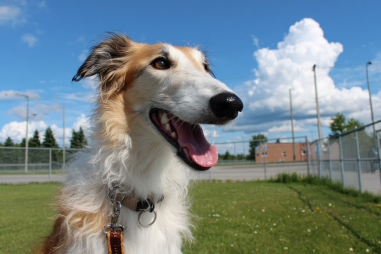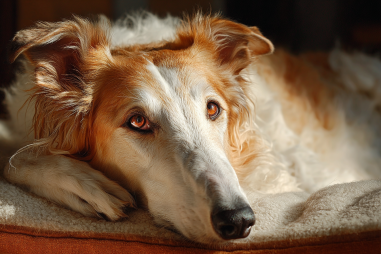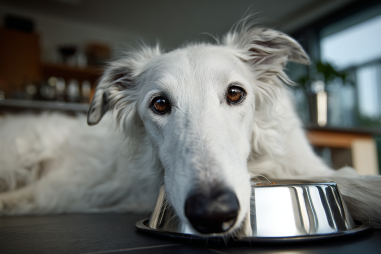Borzoi dogs, with their elegant, graceful appearance and gentle disposition, are cherished companions for many dog lovers. Originally bred in Russia for hunting wolves, these sighthounds possess a unique blend of speed, agility, and beauty. While Borzois are generally healthy dogs, like all breeds, they can be prone to certain inherited and environmental health problems. Being aware of these common health issues and how to prevent them is essential for any Borzoi owner who wants to ensure their furry friend leads a long, vibrant life.
Overview of Borzoi Health
Borzoi are known for their relatively robust health compared to many other purebred dogs. They often enjoy a lifespan of around 10 to 12 years, sometimes longer with proper care. Their slim build and gentle temperament contribute to fewer behavioral health issues, but their unique physiology and genetics can make them susceptible to specific health challenges. Borzois have a deep chest and long legs, which give them their characteristic speed but also make them vulnerable to certain conditions like bloat and joint problems. Staying informed about their health needs and knowing what to look out for is crucial for maintaining your Borzoi’s well-being.
Common Genetic and Inherited Conditions
Because Borzois are a purebred breed, some health problems tend to occur more frequently due to inherited genetic issues. Responsible breeders usually perform screening to help reduce the incidence of these problems, but potential owners and current caregivers still need to be alert.
Borzoi’s deep chest makes them particularly prone to bloat, a life-threatening condition where the stomach twists, trapping gas inside. Bloat can develop rapidly and causes severe pain and shock, requiring immediate veterinary intervention.
Cardiac Issues
Borzoi are at risk for certain heart problems, including dilated cardiomyopathy (DCM). This condition causes the heart muscle to weaken, affecting its ability to pump blood efficiently. Regular check-ups are important to detect early signs of heart disease.
Osteosarcoma
Borzoi, like many large breeds, have a higher risk of developing osteosarcoma, an aggressive bone cancer. Early detection can help with treatment options, though the prognosis can be serious.
Hypothyroidism
This condition occurs when the thyroid gland doesn’t produce enough hormones, leading to symptoms such as weight gain, lethargy, and skin problems. It’s manageable with medication if diagnosed early.
Progressive Retinal Atrophy (PRA)
PRA is a degenerative eye disorder that can cause blindness over time. Genetic testing and regular eye exams can help identify and manage this condition early.
Signs and Symptoms of Health Problems
Being able to recognize early warning signs of illness can be vital in protecting your Borzoi’s health. Borzois tend to be quiet and may not immediately show discomfort, so close observation is necessary.
- Changes in Appetite or Weight: Sudden loss or gain in weight can indicate thyroid or digestive issues.
- Lethargy or Weakness: Unusual tiredness or reluctance to exercise might point to heart or systemic health problems.
- Difficulty Breathing or Coughing: Could indicate heart disease or respiratory conditions.
- Abdominal Swelling or Pain: A swollen or tender abdomen can be a sign of bloat or other internal problems that require emergency care.
- Lameness or Stiffness: Might suggest joint issues, bone cancer, or injury.
- Eye Changes: Cloudiness, redness, or impaired vision warrant prompt veterinary evaluation.
If you notice any of these symptoms, it’s important to consult your veterinarian as soon as possible to ensure early diagnosis and treatment.
The Importance of Regular Veterinary Care
Routine veterinary visits are essential for catching health problems before they become serious. Your vet will conduct physical exams, perform blood tests, and recommend screenings that are breed-specific for Borzois.
Annual check-ups should include:
- Physical exam focusing on the heart, lungs, eyes, and joints
- Blood work to screen for thyroid issues and organ function
- Dental exams and cleaning to prevent oral disease
- Vaccinations and parasite prevention tailored to your area
- Weight and body condition assessment
For Borzois, specialized testing such as echocardiograms and eye exams can be highly beneficial in detecting breed-related issues early.
Nutrition and Exercise to Promote Health
Perfect health is best maintained with a balanced diet and regular exercise suited to your Borzoi’s unique needs.
Nutrition
A high-quality dog food formulated for large breed dogs is essential. Borzois have delicate digestive systems and benefit from food that supports joint health, such as those enriched with omega-3 fatty acids and glucosamine. Avoid overfeeding to prevent obesity, which can exacerbate joint issues and heart disease. Also, feed them smaller, more frequent meals to help reduce the risk of bloat.
Exercise
While Borzois are known for their bursts of speed, they don’t require excessive daily exercise. Regular but moderate exercise like daily walks and safe opportunities to run off-leash in a secure area keep their muscles strong and joints healthy without overexertion. Avoid rigorous exercise immediately before or after feeding to help prevent bloat.
When to Seek Immediate Help
Borzoi owners should be aware of situations that require urgent veterinary attention. Rapid response can save your dog’s life, especially when dealing with certain emergencies.
- Signs of Bloat: Distended abdomen, unproductive vomiting, restlessness, drooling, and signs of pain.
- Severe Breathing Difficulty: Gasping, persistent coughing, or bluish gums.
- Sudden Collapse or Weakness: Could indicate heart failure or neurological emergencies.
- Severe Lameness or Trauma: If your Borzoi is unable to use a limb or is in obvious pain after an injury.
In any emergency, contacting your vet or an emergency animal hospital promptly is critical for the best chance of recovery.
Taking a proactive role in your Borzoi’s health by understanding these common issues and working closely with your veterinarian can help ensure your elegant companion enjoys a happy, healthy life by your side for many years to come.







